| Raksha Bandhan | |
|---|---|
 A rakhi being tied during Raksha Bandhan | |
| Official name | Raksha Bandhan. |
| Also called | Rakhi, Saluno, Silono, Rakri |
| Observed by | Hindus |
| Type | Religious, cultural, secular |
| Date | Purnima (full moon) of Shrawan |
| 2017 date | Monday, 7 August (Friday, 28 July in Nepal) |
| 2018 date | Sunday, 26 August |
| Related to | Bhai Duj, Bhai Tika, Sama Chakeva |

Raksha Bandhan, also Rakshabandhan, or simply Rakhi, is an annual rite performed in the Indian subcontinent, or by people originating from the Indian subcontinent, and centred around the tying of a thread, talisman, or amulet on the wrist as a form of ritual protection. The protection is offered principally by sisters to brothers, but also by priests to patrons, and sometimes by individuals to real or potential benefactors. Differing versions of the rite have been traditionally performed by Hindus in northern India, western India, Nepal, and former colonies of the British Empire to which Hindus had emigrated from India in the 19th-century, and have included, in addition, rites with names rendered as Saluno, Silono, and Rakri. The rituals associated with these rites, however, have spread beyond their traditional regions and have been transformed through technology and migration, the movies, social interaction, and promotion by politicized Hinduism, as well as by the nation state.
Raksha Bandhan is observed on the last day of the Hindu lunar calendar month of Shraavana, which typically falls in August. On this day, sisters of all ages tie a talisman, or amulet, called the rakhi, around the wrists of their brothers, ritually protecting their brothers, receiving a gift from them in return, and traditionally investing the brothers with a share of the responsibility of their potential care. The expression "Raksha Bandhan," Sanskrit, literally, "the bond of protection, obligation, or care," is now principally applied to this ritual. It has also applied to a similar ritual in which a domestic priest ties amulets, charms, or threads on the wrists of his patrons and receives gifts of money. A ritual associated with Saluno includes the sisters placing shoots of barley behind the ears of their brothers.
Of special significance to married women, Raksha Bandhan is rooted in the practice of territorial exogamy, in which a bride marries out of her natal village or town, and her parents, by custom, do not visit her in her married home. In rural north India, where territorial exogamy is strongly prevalent, large numbers of married Hindu women travel back to their parents' homes every year for the ceremony. Their brothers, who typically live with the parents or nearby, sometimes travel to their sisters' married home to escort them back. Many younger married women arrive a few weeks earlier at their natal homes and stay until the ceremony. The brothers serve as lifelong intermediaries between their sisters' married- and parental homes, as well as potential stewards of their security. In urban India, where families are increasingly nuclear, and marriages not always traditional, the festival has become more symbolic, but continues to be highly popular.
Among women and men who are not blood relatives, there is also a transformed tradition of voluntary kin relations, achieved through the tying of rakhi amulets, which have cut across caste and class lines, and Hindu and Muslim divisions. In some communities or contexts, other figures, such as a matriarch, or a person in authority, can be included in the ceremony in ritual acknowledgement of their benefaction. Raksha Bandhan is also celebrated by Hindu communities in other parts of the world. Although rooted in Hindu culture, the festival has no traditional prayers unambiguously associated with it. The religious myths claimed for it are disputed, and the historical stories associated with it considered apocryphal by some historians. More recently, after enactment of more gender-neutral inheritance laws in India, it has been suggested that in some communities the festival has seen a resurgence of celebration, which is serving to indirectly pressure women to abstain from fully claiming their inheritance.
Contents
Etymology
According to R. S. McGregor's Oxford Hindi-English Dictionary, 1993, the name of the festival, the masculine Hindi noun rak??bandhan is composed of the Sanskrit loanword rak??, a feminine noun, which means, "protection," "preservation," or "care." and a second Sanskrit loanword bandhan, a masculine noun, which means "fastening," or "tying together." According to V. S. Apte's Revised Practical Sanskrit-English Dictionary, 1957–1959, ????? pronounced rak?? means, "protection," "preservation," or "guarding;" ????? pronounced, "bandhana," means "The act of binding, fastening, tying."
According to McGregor, the Hindi feminine noun, r?kh?, (which is compared etymologically to rak?? described above) is a "protective talisman: a piece of thread etc., with a rosette, tied ceremoniously round a protector or patron's wrist on the full moon of the month Sr?van: especially by a sister round a brother's wrist, when the brother gives a small gift of money." In contrast, Apte defines one of the secondary meaning of ????? (rak??) to be: "A piece of silk or thread fastened round the wrist on particular occasions, especially on the full-moon day of ?r?va?a, as an amulet or preservative; (????? (rak??) also in this sense).
According to Jack Goody, rak??bandhan is "cognate with the Sanskrit name for marriage, sa?bandhan, where the common element bandhan (Sanskrit: bandhá) refers to the act of tying. The ceremonies are complementary. Marriage (sam, reciprocally) ties spouses; rak??bandhan ties brother and sister."
Regions
Scholars who have written about the ritual, have usually described the traditional region of its observance as north India; however, also included are: central India, western India and Nepal, as well other regions of India, and overseas Hindu communities such as in Fiji. Anthropologist Jack Goody, whose field study was conducted in Nandol, in Gujarat, describes Rakshabandhan as an "annual ceremony ... of northern and western India." Anthropologist Michael Jackson, writes, "While traditional North Indian families do not have a Father's or Mother's Day, or even the equivalent of Valentine's Day, there is a Sister's Day, called Raksha Bandhan, ..." Religious scholar J. Gordon Melton describes it as "primarily a North Indian festival." Leona M. Anderson and Pamela D. Young describe it as "one of the most popular festivals of North India." Anthropologist David G. Mandelbaum has described it as "an annual rite observed in northern and western India." Other descriptions of primary regions are of development economist Bina Agarwal ("In Northern India and Nepal this is ritualized in festivals such as raksha-bandhan."), scholar and activist Ruth Vanita ("a festival widely celebrated in north India."), anthropologist James D. Faubion ("In north India this brother-sister relationship is formalized in the ceremony of 'Rakshabandhan.'"), and social scientist Prem Chowdhry ("... in the noticeable revival of the Raksha Bandhan festival and the renewed sanctity is has claimed in North India."[46]).
Traditions
Anthropologist McKim Marriott in his "Little Communities in an Indigenous Civilization," (1955) describes an "Indian-wide" tradition of Rakhi-bandhan, or Raksha-bandhan, in which a priest ties charms around their patrons' wrists and receives gifts of money, and a local tradition of Saluno in Aligarh district of North India in which sisters place ears of sacred grains on the heads and behind the ears of their brother in affirmation of the brother's role as their real or potential protector.[7][47] Marriott's work also describes the field study of anthropologist Alan R. Beals in Namhalli, a village near Bangalore, who notes changes in the rakhi tradition brought on by modern technology.[47]
While Raksha Bandhan is celebrated in various parts of the Indian subcontinent, different regions mark the day in different ways.
In the state of West Bengal and Odisha, this day is also called Jhulan Purnima. Prayers and puja of Lord Krishna and Radha are performed there. Sisters tie rakhi to brothers and wish immortality. Political parties, offices, friends, schools to colleges, street to palace celebrate this day with a new hope for a good relationship.[citation needed]
In Maharashtra, the festival of Raksha Bandhan is celebrated along with Narali Poornima (coconut day festival). Kolis are the fishermen community of the coastal state. The fishermen offer prayers to Lord Varuna, the Hindu god of Sea, to invoke his blessings. As part of the rituals, coconuts were thrown into the sea as offerings to Lord Varuna. The girls and women tie rakhi on their brother's wrist, as elsewhere.[48][49]
In the regions of North India, mostly Jammu, it is a common practice to fly kites on the nearby occasions of Janamashtami and Raksha Bandhan. It's not unusual to see the sky filled with kites of all shapes and sizes, on and around these two dates. The locals buy kilometres of strong kite string, commonly called as "gattu door" in the local language, along with a multitude of kites.[citation needed]
In Haryana, in addition to celebrating Raksha Bandhan, people observe the festival of Salono.[50] Salono is celebrated by priests solemnly tying amulets against evil on people's wrists.[
Watch movie Raksha Bandhan online on Amazon
Watch movie Raksha Bandhan online
Watch The Movie On PrimeAppu Full HD Movie Download
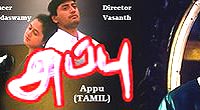
Sooryavansham Full HD Movie Download
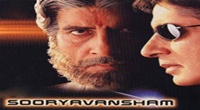
Justice Chowdhary Full HD Movie Download
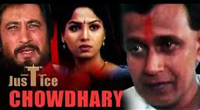
Ghamandee Full HD Movie Download

Lalchee Full HD Movie Download

Angaarey (1998) Full HD Movie Download
.jpg)
Haunted Full HD Movie Download

Jaanbaaz (1986) Full HD Movie Download
.jpg)
Tum Se Achcha Kaun Hai (1969) Full HD Movie Download
.jpg)
Chitkabrey - Shades Of Grey Full HD Movie Download

Aji Bas Shukriya Full HD Movie Download
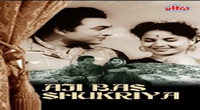
Jai Bhole Bam Bam Full HD Movie Download
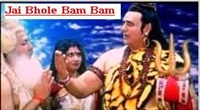
Yeh Hai Aurat Full HD Movie Download
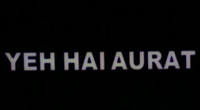
Rajakali Amman Full HD Movie Download
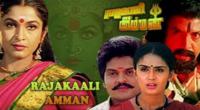
Vaddante Dabbu Full HD Movie Download

Aaj Ka Naya Yelgaar Full HD Movie Download

Thaskara Lahala Full HD Movie Download

Subhavaartha Full HD Movie Download
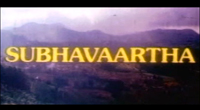
Evarunenu Full HD Movie Download
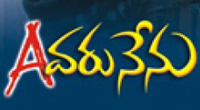
Eeswarudu Full HD Movie Download
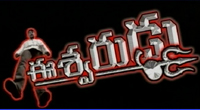
New York Full HD Movie Download

Download latest Movie from bollywood
- 1> baaghi 3
- 2> THE SKY IS PINK MOVIE FULL STORY AND REVIEW
- 3> Luka Chuppi
- 4> TO ALL THE BOYS I’VE LOVED BEFORE
- 5> Kabir Singh
- 6> Street Dancer 3D
- 7> Simmba
- 8> Gone Girl
- 9> The Girl Who Lived
- 10> Ludo
- 11> DILWALE DULHANIA LE JAYENGE
- 12> GUILTY
- 13> The Godfather
- 14> Adventures of Rusty
- 15> Sooryavanshi
- 16> Satyameva Jayate 2
- 17> Thappad
- 18> Bhool Bhulaiyaa 2
- 19> KGFChapter 2
- 20> Mardaani 2
- 21> Pinjar
- 22> Shivaji maharaj
- 23> Ek Villian 2
- 24> Hungama 2
- 25> Divergent
- 26> Mumbai Saga
- 27> The Internship
- 28> HIT (telugu)
- 29> Panga
- 30> The perfect date
- 31> 16 December
- 32> Gopala Gopala (Telugu)
- 33> Brahmastra
- 34> Gangubai Kathiawadi
- 35> Manmadhudu
- 36> Nenu local
- 37> Mahanati
- 38> Shatamanam bavathi
- 39> Lagaan
- 40> After
- 41> MOM
- 42> Shamshera
- 43> Raguvaran BTech
- 44> Khakee
- 45> The villain
- 46> OM
- 47> Mr. perfect
- 48> Bueatifull mind
- 49> Hichki
- 50> Gabbar Singh
- 51> Jogi
- 52> Before Sunrise
- 53> Before Sunset
- 54> Before Midnight
- 55> The Big Bull
- 56> Top Gun: Maverick
- 57> The Purge
- 58> The Sky is Pink
- 59> Laxmmi Bomb
- 60> Sadak 2
- 61> Sufna
- 62> Prithviraj
- 63> PK
- 64> Coolie No 1(2020)
- 65> Black Widow
- 66> Dear Zindagi
- 67> Dil Bechara
- 68> PHIR HERA PHERI
- 69> WAR
- 70> Dostana
- 71> RRR: Roudram Ranam Rudhiram
- 72> Maidan
- 73> Dabbang 3
- 74> Chhalaang
- 75> life as we know it
- 76> SherShaah
- 77> Sandeep Aur Pinky Faraar
- 78> Event Horizon
- 79> 83
- 80> Radhe: Your Most Wanted Bhai
- 81> Gunjan Saxena: The Kargil Girl
- 82> Mr India
- 83> Vivah
- 84> Anokha Bandhan
- 85> Ghost
- 86> Bhoot: Part One - The Haunted Ship
- 87> Haseen Dilruba
- 88> Laal Singh Chaddha
- 89> Qismat
- 90> Rajput
- 91> Drive
- 92> Dil Chahta Hai
- 93> Dil Ki Baazi
- 94> Dil Ka Rishta
- 95> Teesri Manzil
- 96> Dil
- 97> Love Aaj Kal
- 98> Khaali Peeli
- 99> Bunty Aur Babli 2
- 100> Atrangi Re
- 101> Gulabo Sitabo
- 102> Jodi
- 103> Suraj Pe Mangal Bhari
- 104> Deewana
- 105> Attack
- 106> Sardar Udham Singh
- 107> Toofan
- 108> THE LOVEBIRDS
- 109> Jersey
- 110> Ginny Weds Sunny
- 111> Thalaivi
- 112> Shiddat
- 113> Angels vs Zombies
- 114> Koi Mil Gya
- 115> Thank God
- 116> Bhuj: The Pride of India
- 117> Hum Aapke Hain Kaun
- 118> The Platform
- 119> Bird Box
- 120> Roohi Afzana
- 121> Torbaaz
- 122> Nikamma
- 123> World War Z
- 124> Extraction
- 125> Train to Busan
- 126> Life of Pi
- 127> SHAADI MEIN JROOR AANA
- 128> Himmat Aur Mehnat
- 129> To All The Boys: P.S. I Still Love You
- 130> Mimi
- 131> Good Newwz
- 132> Shubh Mangal Zyada Saavdhan
- 133> Raabta
- 134> Harry Potter and the Philosopher's Stone
- 135> Harry Potter and the Chamber of Secrets
- 136> Chhapaak
- 137> War of the Worlds
- 138> Harry Potter and the Prisoner of Azkaban
- 139> Harry Potter and the Goblet of Fire
- 140> MURDER MYSTERY
- 141> Shakuntala Devi
- 142> Bachchan Pandey
- 143> Jayeshbhai Jordar
- 144> Sheer Qorma
- 145> Saina
- 146> 'O' Pushpa I hate tears
- 147> Kedarnath
- 148> MS Dhoni The Untold Story
- 149> Chhichhore
- 150> Badhaai Ho
- 151> Unstoppable
- 152> Oz the Great And Powerful
- 153> The Girl on the Train
- 154> Haathi Mere Saathi 2020
- 155> The Conjuring: The Devil Made Me Do It
- 156> Gandhi Se Pehle Gandhi
- 157> The Song of Scorpions
- 158> Srimanthudu
- 159> Hello Guru Prema Kosame
- 160> Beauty and The Beast
- 161> Black Panther
- 162> Charlie and the Chocolate Factory
- 163> Bole Chudiyan
- 164> Fidaa
- 165> Duvvada Jagannadham
- 166> Bruce Lee: The Fighter
- 167> Hyper
- 168> Yaara
- 169> Red (2020)
- 170> Shivam
- 171> That Is Mahalakshmi
- 172> Nishabdham
- 173> Aashram 2020 web series
- 174> Laxmii
- 175> Mismatched
- 176> STUDENT OF THE YEAR 2
- 177> NAIL POLISH
- 178> Ramprasad Ki Tehrvi
- 179> KAAGAZ
- 180> 12 o Clock
- 181> The Power
- 182> bolo hau
- 183> Tribhanga
- 184> JAMUN
- 185> Madam Chief Minister
- 186> Maasaab
- 187> Aadhaar
- 188> Tanhaji
- 189> Bhaagi 3
- 190> Bhootnath
- 191> MALANG
- 192> Jai Mummy Di
- 193> Haathi Mere Saathi 2021
- 194> Shakeela
- 195> Unpaused
- 196> Annayya
- 197> Vamsoddharakudu
- 198> Mrugaraju
- 199> Narasimha Naidu
- 200> Sankranti
- 201> Manasu Maata Vinadhu
- 202> Anjaane
- 203> Apaharan
- 204> Bachke Rehna Re Baba
- 205> Bewafaa
- 206> Roohi
- 207> Radhe
- 208> Zindagi Khoobsoorat Hai
- 209> Yeh Mohabbat Hai
- 210> Yeh Kya Ho Raha Hai?
- 211> The Tomorrow War
- 212> DehradunDiary
- 213> Meri Shaadi Karaoo
- 214> Matruu Ki Bijlee Ka Mandola
- 215> No One Killed Jesica
- 216> Aag Ka Goola
- 217> Eight Million Dollars
- 218> Three Hundred
- 219> Cats and Dog
- 220> Decoy
- 221> Gold Rush
- 222> You Have Got Mail
- 223> Final Destination three
- 224> Tofan
- 225> Jungle
